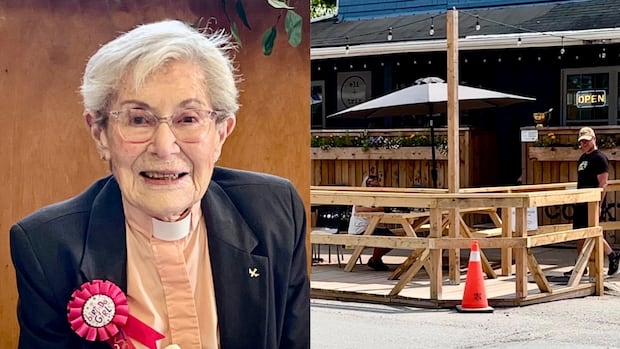Agreement approved to remedy longstanding discrimination against disabled Nova Scotians

A settlement agreement has been approved in the case of the province’s systematic discrimination against disabled Nova Scotians, stipulating that all disability institutions must be closed for the next five years.
The decision by Donald C. Murray, chair of the Independent Commission of Inquiry on Human Rights, outlines a five-year resolution process and retains the jurisdiction of the Commission of Inquiry to monitor progress as the parties – the province and the Disability Rights Coalition of Nova Scotia – work to address the remedy overseen by an independent review panel and experts.
Murray said the preliminary consent order serves as a public commitment from all parties involved, including the Nova Scotia Human Rights Commission.
The settlement agreement, reached on April 26, revolves around deinstitutionalization.
In the first year, which starts on 1 July, the province will not introduce a new admission policy for institutions that are funded from the Disability Support Programme.
By the third year, 75 percent of people currently housed in adult residential centers, regional rehabilitation centers, and residential care facilities will be living in community facilities.
Within five years, by March 31, 2028 at the latest, the government will close all institutions for people with disabilities.
The process that led to the settlement agreement and the decision of the board was long and difficult.
It started with Joseph Delaney, Sheila Livingstone and Beth MacLean who filed a complaint with the Nova Scotia Human Rights Commission in 2014 that they had been forced to live in locked wards of a Dartmouth psychiatric hospital for years, despite medical advice that they had been advised in the community. could be accommodated.
An independent commission of inquiry found in March 2019 that Delaney, Livingstone and MacLean were discriminated against, but ruled against a second claim by the Disability Rights Coalition of systemic discrimination against all people with disabilities.
Arguing that the decades of and continuous treatment of people with disabilities, including unnecessary institutionalization, long and indefinite waiting times, and forced removal to remote areas far from family and friends, was discriminatory against all people with disabilities, the coalition appealed the board’s finding of systemic discrimination to the county’s highest court.
The Nova Scotia Court of Appeal endorsed the coalition’s argument of systemic discrimination in a decision dated October 6, 2021.
After the Supreme Court of Canada decided in April 2022 not to hear an appeal from the newly elected Progressive Conservative government, the allegation of systematic discrimination was returned to the Commission of Inquiry, paving the way for negotiations for a remedy that would affect will have for thousands of disabled Nova Scotians.
A long history
In August 2022, the county and coalition agreed on a collaborative process, including the appointment of independent experts Eddie Bartnik and Tim Stainton.
After months of work, including consultation with those directly affected, the experts produced a report recommending sweeping changes that would end a quarter century of systemic discrimination and create a social assistance system that would meet the different needs of people with disabilities. recognizes and respects disability. .
Claire McNeil, a lawyer for the disability rights coalition, has said the systematic discrimination has been practiced by successive governments since 1998, when the province amalgamated a patchwork of social services.
Discrimination through institutionalization arises in two ways, she said.

“As a result of the county’s failure to provide social assistance, people end up in hospitals, forensic facilities,” McNeil said.
“People are willing to leave these hospitals, but they can’t leave because they can’t access social assistance.”
Institutionalization is also embedded as part of the Disabilities Support Program, approved and funded 100 percent directly by the government, she said.
“People in this province have been told for decades that you have to live in an institution as a condition of receiving social assistance.”
Waiting list
Despite commitments by successive governments to close institutions, nine major institutions remained open in the province earlier this year, along with dozens of other smaller residential care facilities that have been phased out elsewhere.
McNeil said there were more than 500 people with disabilities on the waiting list who are “absolutely denied access to support and services and are 100 percent eligible financially” and in every other way.
Those on the waiting list live in the hospital and elsewhere, some at home with elderly parents and others in homeless shelters, she said.
“They have been assessed by the department as being in need of all these support and services and they are getting nothing. That is a human rights violation and, moreover, in violation of the legal obligation of the government.”
Individualized planning support and individualized funding, including an accessible system designed with users in mind, will be fully operational in Year 2 of the settlement agreement, along with the implementation of a county-wide critical response team to ensure people in crisis situations have immediate access to supports and services.
“Due to the lack of social assistance from the province, people end up in hospitals, forensic institutions.”
— Claire McNeil, attorney for the Disabled Rights Coalition
Supporting people in their community of choice is an integral part of the settlement agreement.
In Year 1, the local area coordination model will begin with the installation of 25 new local area coordinators and local area coordination leaders in all four regions and by year 3 there will be 80 local area coordinators throughout the year. province.
The coordinators will put an end to the years of backlog in access to social assistance.
In Year 3, all individuals currently on the Disability Support Program waiting list who do not have access to social assistance will have full access to the support and services they need to live in a community.
In Year 5, the waiting list will cease to exist, with new applicants receiving immediate access to navigation support and services and, where applicable, emergency assistance.
“While this settlement is years overdue for so many people, I’m glad we came to an agreement so that people with disabilities don’t have to cut their lives off from society and are no longer treated as problems. resolved, but full citizens responsible for our own destiny,” said Vicky Levack, a member of the Disability Rights Coalition, in April when the agreement was reached.
McNeil said the agreement “will be legally enforceable and will ensure that persons with disabilities have access to social assistance when they need it, in the community they choose, with the support and services they need to live in a community rather than in an institutional environment.
The remedy, McNeil said, “is a major turning point in the fight for equality for persons with disabilities.”





